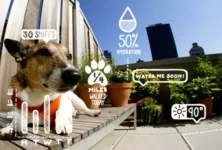“The Internet of Things (IoT) Will Thrive by 2025” is the latest finding that is a part of a sustained effort throughout 2014 by the Pew Research Center Internet Project to mark the 25th anniversary of the creation of the World Wide Web by Sir Tim Berners-Lee.
Through discussions with the luminaries of the world wide web like Vint Cerf, vice president and chief Internet evangelist for Google, and Marc Rotenberg, president of the Electronic Privacy Information Center, the researchers concluded that to a notable extent, the experts agree on the technology change that lies ahead, even as they disagree about its ramifications.
Leading the way is the IoT, the promise of a global, immersive, invisible, ambient networked computing environment built through the continued proliferation of smart sensors, cameras, software, databases, and massive data centers.
The experts believe that wearable technologies where people will be able to connect to the Internet and get feedback on their activities, health and fitness will lead to ways in which they will monitor others (their children or employees, for instance) who are also wearing sensors, or moving in and out of places that have sensors.
Chiefly, IoT will have an impact in the home where people will be able to control nearly everything remotely, from the air conditioning to how often their gardens are watered.
In the community embedded devices and smartphone apps will enable more efficient transportation and give readouts on pollution levels. “Smart systems” might deliver electricity and water more efficiently and warn about infrastructure problems.
Manufacturing and supply chains will have sensors and readers that more precisely track materials to speed up and smooth out the manufacture and distribution of goods.
Expert respondent Patrick Tucker, author of The Naked Future: What Happens In a World That Anticipates Your Every Move? provided a nice working description of the Internet of Things, writing: “Here are the easy facts: In 2008, the number of Internet-connected devices first outnumbered the human population, and they have been growing far faster than have we. There were 13 billion Internet-connected devices in 2013, according to Cisco, and there will be 50 billion in 2020. These will include phones, chips, sensors, implants, and devices of which we have not yet conceived.”
Tucker went on to forecast the benefits of all this connected computing: “One positive effect of ‘ubiquitous computing,’ as it used to be called, will be much faster, more convenient, and lower-cost medical diagnostics. This will be essential if we are to meet the health care needs of a rapidly aging Baby Boomer generation. The Internet of Things will also improve safety in cities, as cars, networked to one another and their environment, will better avoid collisions, coordinate speed, etc. We will all be able to bring much more situational intelligence to bear on the act of planning our day, avoiding delays (or unfortunate encounters), and meeting our personal goals. We are entering the telemetric age—an age where we create information in everything that we do. As computation continues to grow less costly, we will incorporate more data-collecting devices into our lives.”
While it is nice to paint a picture of a gloriously connected world with data and applications that help to smooth things along, give you information to help make better choices, or ultimately, control your environment, there are no guarantees that the people who build this world will be as benign as we would like them to be.
Economies and business practices will change. People may find their input as secondary to that of data from sensors. The tracking of our persons and personal life seems overly intrusive.
From a technology point of view it is all cool. From a cultural, moral and ethical point of view we may have a lot of thinking ahead of us.








